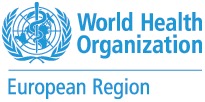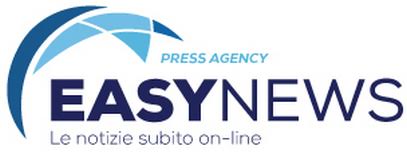
Widening inequities, declining trust: The two are inextricably linked, with significant impacts on health, finds new WHO/Europe report
Embargoed till 10:00 CEST on Thursday, 13 July 2023
COPENHAGEN, 13 July 2023— A hard-hitting report published today by the WHO Regional Office for Europe reveals a marked decline in trust across the Region between people and institutions including governments, threatening pan-European solidarity. Transforming the health and social equity landscape: promoting socially just and inclusive growth to improve resilience plots the inextricable link between widening health and social inequities, the ever-increasing number of people living insecure lives, and the associated significant reductions in trust.
Coordinated by WHO’s European Office for Investment for Health and Development in consultation with key United Nations and other global agencies [1], the ground-breaking analysis highlights that when people don’t feel the benefit of government policies — including those that protect health — yet see others benefitting, they increasingly turn away from government and other public entities and institutions. The report also offers a range of measures and solutions to address this challenge.
“We owe it to the nearly 1 billion people living in WHO’s 53 Member States across Europe and Central Asia to invest in ways that deliver a better life and a healthier society for all, both today and for generations to come,” noted Dr Hans Henri P. Kluge, WHO Regional Director for Europe. “All governments and policymakers should take note of the report’s ominous findings and implement concrete policy solutions that benefit everyone, including and especially the most neglected and vulnerable. Strengthening trust and transparency are truly crucial, if we are to absorb and implement the painful lessons of the COVID-19 pandemic and other emergencies as we prepare better for the future.”
The report’s key findings:
- Lack of trust linked with insecure living: For those living on a low income, trust in other people is 40% lower compared with those on a high income, and, at the same time, trust in government has declined significantly since the start of the pandemic in those out of work [2];
- Widening health and economic inequities have fatal consequences: Member States that spend the least on health systems and human development, had higher mortality rates during the pandemic, amounting to an estimated 600,000 preventable deaths across the European Region [3];
- Lack of social protection to support those most in need further widens inequities: People who are discriminated against through race, education or gender, are being further left behind, particularly young people and women, as low pay and lack of work drives economic exclusion, poor health and declining levels of trust;
- Digital technologies and green transitions must be implemented equitably: Digital and green investments can address health, social and economic inequities through, for example, job creation, digital literacy programmes for women, young people and low skilled workers, and community regeneration.
“We stand at a critical turning point,” warned Christine Brown, Head, WHO European Office for Investment for Health and Development. “Our new analysis further confirms that ‘profit-only’ economic policies do not work, reinforcing the importance of health as a beneficiary and a driver of well-being economies. This report stresses that health, the economy and the social fabric of our daily lives are interwoven. We see that when the benefits of government policies fail to create better lives and opportunities for all in society, solidarity and trust are compromised, leading to a breakdown in the dynamics of relationships between people, governments and institutions, all of which is at the heart of social stability and the well-being of our Region.”
The new report calls for high-quality, accountable and transparent public policies and services—such as ensuring that social support targets those who need it the most—as a way forward to build and strengthen social cohesion, resilience and trust, and reduce the widening health gap.
The report calls for five concrete actions:
- Invest in young people to realise the greatest returns for health, well-being, a flourishing economy and trust in societies; this includes prioritising mental health, particularly for those left behind;
- Develop responsive and integrated social and health protection systems to address multiple insecurities and build resilience to future shocks, for example linking social protection into local housing, health, education and employment services; this will further protect young people, promote social cohesion and trust in government;
- Ensure community voices, particularly young people, are heard and included in shaping decision-making to enable all policies and services to deliver higher trust in institutions;
- Promote well-being through equitable digital and green economic recovery as the main engine for recovery in the WHO European Region, recognising people need skills and resources to participate in a digital world and to take advantage of green solutions, truly ensuring no one is left behind;
- Ensure mechanisms for equitably distributing health and care resources to enable people to thrive and live a life of dignity; access should be universal and proportionate to needs across the socioeconomic gradient, rather than targeted, to ensure the needs of the most disadvantaged are met.
“When governments don’t invest in creating the means for all people to thrive then people’s willingness and ability to contribute to society is severely compromised. These policy solutions show how public investment can rebuild European solidarity,” explained Ben Barr, professor in Applied Public Health at Liverpool University, United Kingdom, who heads the WHO Collaborating Centre for Policy Research on Determinants of Health Equity that led the analysis with support from the WHO Scientific Advisory Group on Health Equity (SAGE). “The solutions underscore how digital and green transitions can promote health and well-being. And they highlight the importance of listening to and working with diverse groups impacted by widening social and economic insecurities to build trust, resilience, and social cohesion.”
ENDS
NOTES TO EDITORS
References
[1] UN and global agencies involved in the consultation process include UNICEF and the International Labour Organization (ILO) and the Organization for Economic Cooperation and Development.
[2] People who are out of work are 40% less likely to trust in government compared with before the pandemic. This lack of trust in governments and health systems has been reported as a factor increasing health inequities in marginalized ethnic and minority populations across the Region.
[3] As stated in the report “If the levels of health care investment and human development in all Member States in the WHO European Region with below average levels had improved to the Regional average level, this would have prevented an estimated 600,000 excess deaths during the pandemic”
About the report
Transforming the Health and Society Equity Landscape provides an update to WHO European Region’s 2019 landmark Health Equity Status Report (HESR), which highlighted rising health inequalities and health gaps between the most deprived 20% and most affluent 20% of Member States populations either staying the same, or worsening, with the Region on course to miss its target for Sustainable Development Goal 10 – reducing inequity.
HESR provided, for the first time, data, tools and policies needed for Member States across the European Region to tackle health inequities. The report outlined how tangible results could be achieved in a relatively short space of time – even within the average lifetime of a national government of Europe (approximately four years).
The analysis, for example, showed that an averaged sized country, with a population of 60 million, could improve the lives of 250,000 people in just four years by investing in universal healthcare, decent work, affordable homes and secure neighbourhoods, increasing GDP by as much as 4.2%. Then the COVID-19 pandemic hit.
The updated report, Transforming the Health and Social Equity Landscape, builds on the Region’s 2021 ground-breaking Pan-European Commission on Health and Sustainable Development, which highlighted the importance of bringing health, business and finance together around investing in solidarity-based policies. The new report follows WHO European Region’s High-Level Forum on Health in the Well-being Economy, 1-2 March in Copenhagen.
About WHO/Europe
The World Health Organization (WHO) is a specialized agency of the United Nations responsible for international public health. Established in 1948, WHO works with governments and partners worldwide to promote health, keep the world safe and serve the vulnerable. The WHO Regional Office for Europe (WHO/Europe) is one of WHO’s 6 regional offices around the world. It serves the WHO European Region, which comprises 53 countries covering a vast geographical region encompassing Europe and Central Asia – from the Atlantic to the Pacific oceans.
About the WHO European Office for Investment for Health and Development, Venice, Italy
The Venice Office is WHO/Europe’s centre of excellence promoting health and prioritizing a reduction in gender and health inequities to create fairer and healthier settings and societies. To achieve this, the Office works with countries and partners in the pan-European Region to:
- implement gender and equity-responsive health and social systems;
- build policy alliances with social and economic sectors to invest in public health goods for health and well-being for all;
- strengthen know–how to integrate health, equity and well-being into everyday life settings; and
- quantify and demonstrate how health and health equity are public goods for social cohesion and inclusive growth.
Contact WHO/Europe’s Venice Office: whovenice@who.int
This information was brought to you by Cision http://news.cision.com
If you would rather not receive future communications from WHO Regional Office for Europe, please go to https://optout.ne.cision.com/en/sDHe7tm4jh9eY4DrtHgfspkjwnoE3WidzE5qZSv95dDWDVTEh6Fm5vihmtYf65sK62XaAi7qsZtpGv9G12YuboZPZcyBajwJRuK4Vu3wbvxA6iEpUhoQLeBMNvLF4tvQNHd.
WHO Regional Office for Europe, Marmorvej 51, Copenhagen, 2100 Denmark




